It’s hard to know where to start this week. Any temporary slowdown we might have experienced over the holidays has been wiped away. Once again, we find ourselves knee deep in robotics news, like the trash compactor scene in A New Hope — only without the closing walls, Death Star and weird little one-eyed monster. Honestly, the whole analogy really falls apart under the slightest scrutiny.
There’s a wild flurry of news this week, and it really runs the gamut, in terms of variety. We’re talking space, cops (but not Space Cops), mountain climbing, lawnmowing and a whole lot of factory work. Seeing as how we here in New York City once again find ourselves bearing down something called a “bomb cyclone,” let’s kick things off on the New York Stock Exchange floor.
Knightscope rang the bell this morning, as it became the latest robotics firm to IPO. You might not know the firm’s name, but you’ve more than likely seen its robots, either in person or on the news. Founded in 2013, the company’s profile grew quickly, courtesy of egg-shaped mobile robots designed to patrol public spaces — as well as partnerships with a number of police departments across the U.S.
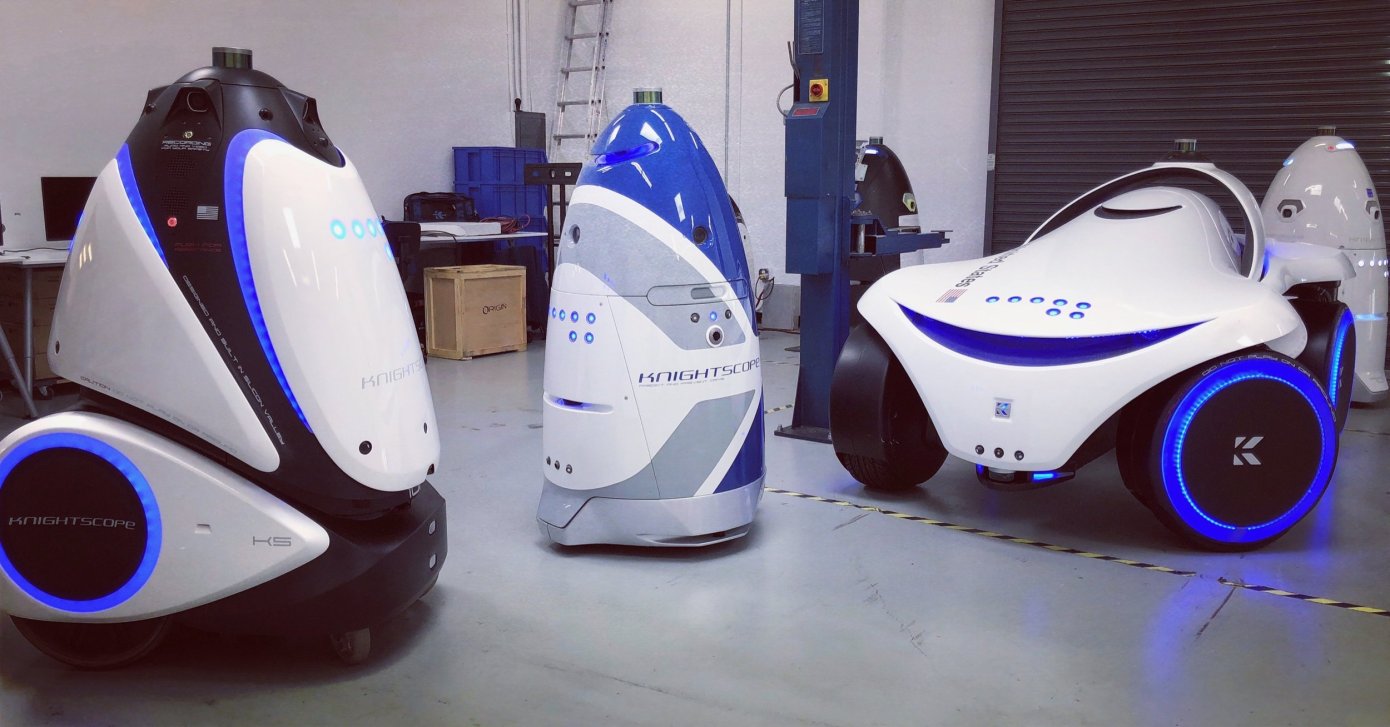
Image Credits: Knightscope
I recently spoke with the company’s CEO, William Santana Li, a former Ford executive who uttered the phrase, “I’m going to get in trouble for saying this” a lot during the interview. We covered a range of topics, from the decision to IPO to automation accidents to questions over profiling. Several highlights:
I’ve said to the media, our underwriters, our lawyers, our teams, our clients, our investors — more incidents will occur. It’s not an unreasonable thing to say accidents happen. In a lot of cases, we have the evidence to prove that humans are not perfect and maybe have issues driving. In many cases, it’s maybe not the robot, it’s accidents happen. Will more incidents occur in the future? Absolutely. Guarantee it. The most important thing is: How do we handle it? How do we conduct ourselves? How do we take care of our clients? Do we make sure everyone is safe and, wherever possible, make whatever revisions need to happen?
and:
If you’re inferring issues with racial bias — and I might get in trouble for saying this — but to me, it’s garbage in, garbage out. You tell a kid, when they’re growing up that pistachio ice cream is really bad, when they grow up, pistachio ice cream is really bad. If you feed an algorithm all the wrong data or an incomplete set of data, that’s an engineering bad input problem. That’s not that the technology is biased. I’m hoping that over time, that gets corrected over the natural course of engineers always making things better and better.
and:
I worry there’s some conflation happening between questions of implicit biases in AI and broader concerns over automation. The former is a very real problem and something that absolutely needs to be addressed. There’s a lot of truth to the fact AI models are only as what humans put into them – which is precisely what creates biases. These are things that need to be addressed now, as we’re in the very early stages of using robots to police society.
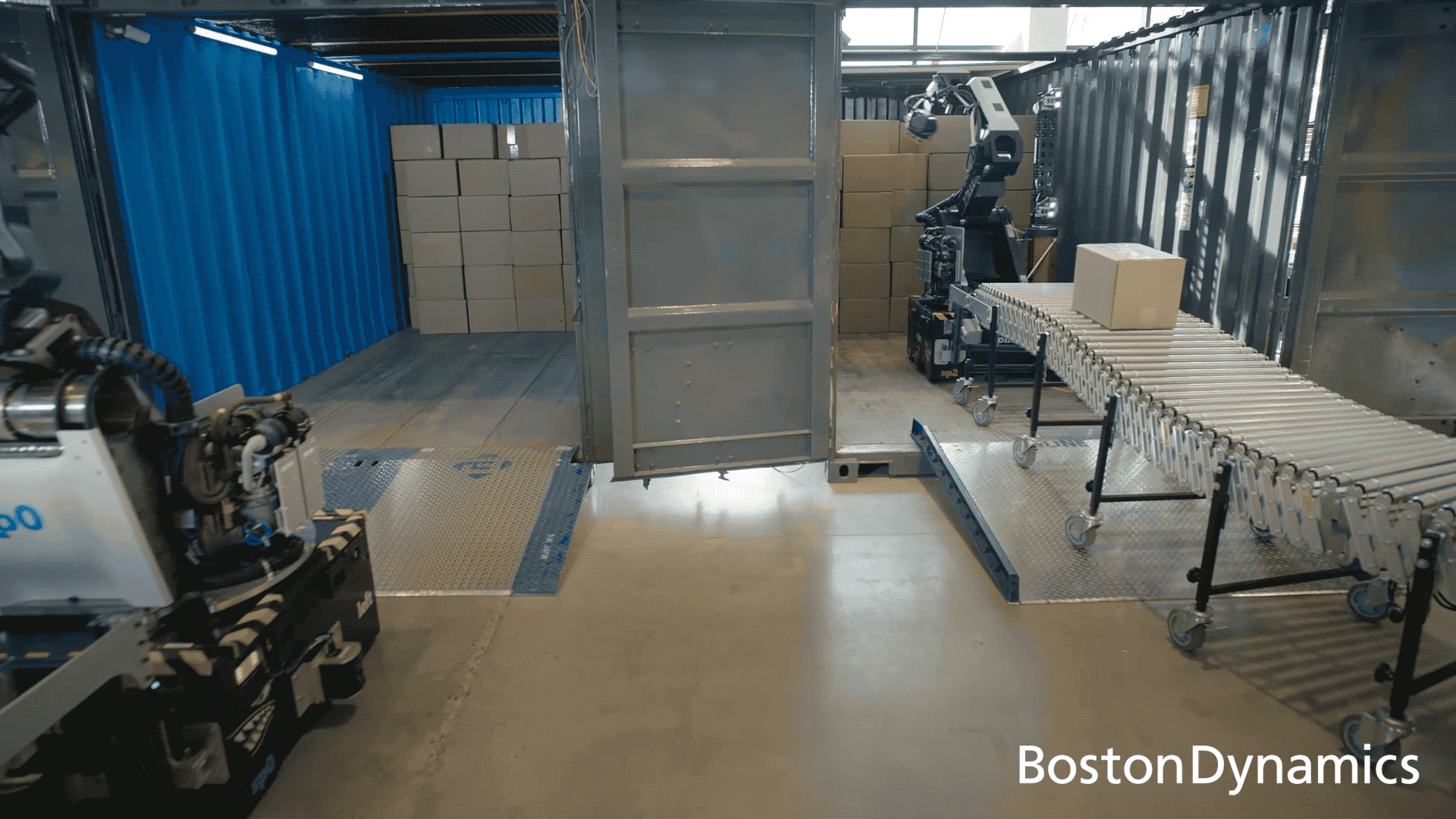
Image Credits: Boston Dynamics
Some big news out of Boston Dynamics this week — something far more grounded than we saw from the company onstage with Hyundai. In fact, this is the sort of stuff I’d like to see highlighted more in the world of robotics: sophisticated systems getting to work doing unglamorous jobs like unloading trucks. It’s far more down-to-earth than the videos Hyundai was showing off with Spot hanging out on Mars. It’s perfectly possible for things to be pragmatic and impressive at the same time.
And for a product with no existing commercial clients, this was some big news. DHL agreed to a $15 million deal to bring Boston Dynamics’ Stretch robot to its North America logistics centers. The number of units hasn’t been disclosed yet, but they will roll out over three years, serving as a key proving ground for the firm’s commercial potential beyond Spot. Moving boxes around is a highly repetitive, intensive task that will really push the tech to its limit. There’s also often an expectation here that these systems be able to effectively run 24/7.
This will be the first major test for Boston Dynamics under the Hyundai umbrella, as well as DHL’s own automation ambitions as it looks to remain competitive with the likes of Amazon encroaching on its logistics territory.
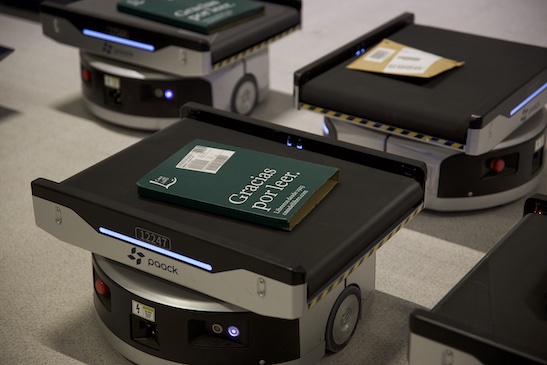
Sorting Robot in Paack Distribution Centre Madrid. Image Credits: Paack
Speaking of, staying competitive with Amazon (something that sure seems to come up a lot in this newsletter), there were a couple of big raises for robotic logistics firm. Paack announced this week a $225 million Series D led by SoftBank Vision Fund 2, as it looks to expand further into Europe.
Says founder and CEO Fernando Benito, “Demand for convenient, timely, and more sustainable methods of delivery is going to explode over the next few years and Paack is providing the solution. We use technology to provide consumers with control and choice over their deliveries, and reduce the carbon footprint of our distribution.”
Meanwhile, Massachusetts-based Vecna Robotics announced a $65 million Series C that more than doubles its funding to date. Forklift injuries are a very real issue in the world of warehouses, so the firm is looking to help automate pallet lifting with its robotic systems. The round was led by Tiger Global Management, which also led the $21.5 million Electric Sheep raised for its robotic lawnmowers.

Image Credits: Electric Sheep Robotics
In spite of the indefinite delay of iRobot’s Terra, there are a number of players in this field (well, lawn), aimed at both commercial and professional applications. Electric Sheep’s (yeah, it’s a Philip K. Dick reference, got it) approach is similar to what the John Deere-owned Bear Flag Robotics is doing in the tractor space, allowing users to effectively retrofit their existing mowers, using the Dexter system.
Former TechCrunch Disrupt Battlefield contestant Wandelbots continues to raise big numbers. This time out it’s an $84 million Series C. The company’s among those looking to tackle a key issue in automation: How can workplaces train robots without programming expertise? The firm’s solution comes in the form of a “Trace Pen,” which workers use to create movements the robots can then mimic. The company already has a number of high-profile clients, including BMW and VW, and will be using the funding to further expand into markets like the U.S. and Asia.
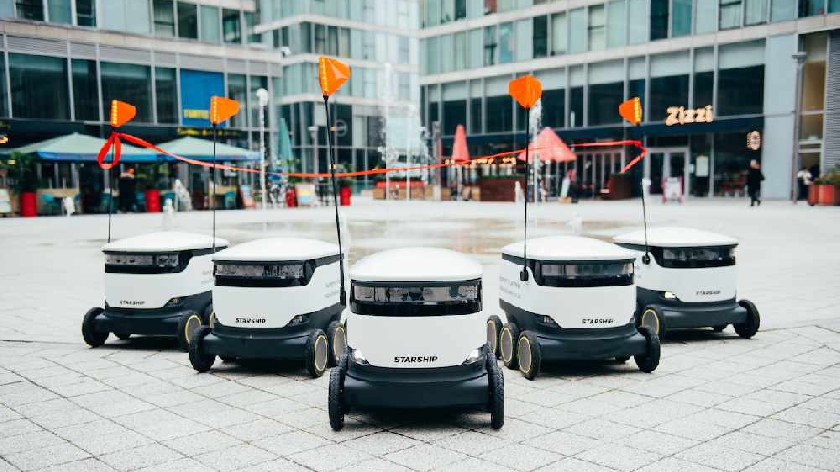
Image Credits: Starship Technologies
Is it truly an issue of Actuator without some funding for delivery robots? Starship just collected around $57 million from the EU’s European Investment Bank. As Ingrid notes, the San Francisco-based startup has already seen a fair bit of deployment in Europe.
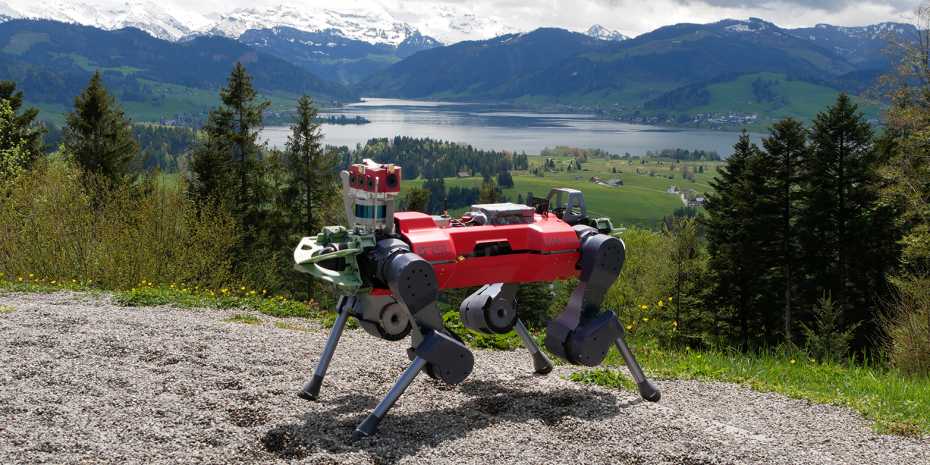
Image Credits: Takahiro Miki/ETH Zurich
And just so it’s not all funding this week, a fun one out of ETH Zurich, which taught the quadrupedal ANYmal robot how to hike — specifically up nearby Mount Etzel. Researchers say that, using visual and tactile feedback, the robot learned to hike some 120 vertical meters in 31 minutes — four minutes faster than the standard for human hikers.
A little higher up, the Bezos-owned Blue Origin has agreed to acquire Honeybee Robotics, which creates drills and other tools for Earth and space travel. CEO Kiel Davis confirmed the acquisition on the company’s blog:
We’ve been building Honeybee’s capabilities and brand for almost forty years. Joining Blue Origin is a major step forward for us. We thank the entire EBI family for their support over the last four and a half years. With Blue Origin we look forward to further expanding our capacity to meet the most exciting challenges in next-generation space transportation, space mobility, space destinations, and planetary science and exploration.
Terms of the deal, which is set to close next month, have not been disclosed. Honeybee says it expects to operate “business as usual” under its newer, bluer, parent.

Image Credits: Bryce Durbin/TechCrunch
Actuator: To infinity and subscribe!

You must be logged in to post a comment.